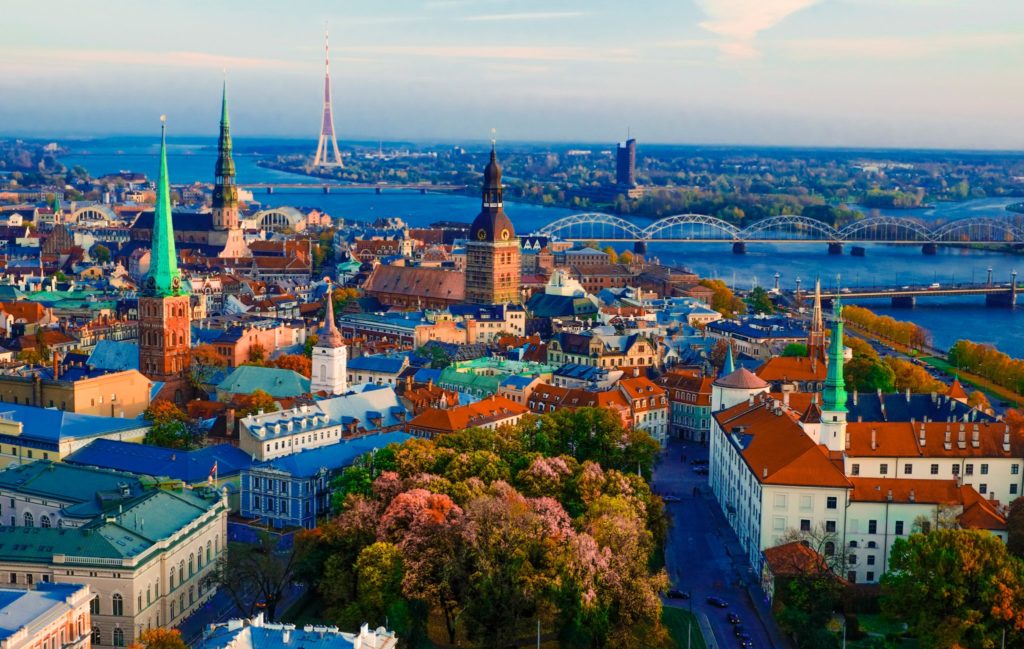Company registration Latvia - Your partner for business success
Are you considering starting or expanding your business in Latvia? Whether you are an entrepreneur looking to register a new company, obtain licensing, or optimize your tax position, Company Registration Latvia offers a wide array of professional services designed to simplify the complexities of doing business in Latvia. From company registration to immigration services, we are here to ensure your business is set up efficiently and legally compliant, so you can focus on growing your venture.

Business in Latvia
Latvia is an ideal location for businesses looking to establish themselves within the European Union. As a member of the EU, Latvia offers access to European markets, a competitive business environment, and favorable tax rates, all while maintaining a skilled workforce and modern infrastructure. Whether you’re starting a new company, expanding your operations, or making an investment, Latvia provides a conducive environment for business growth.
Our expertise and services
We specialize in assisting both local and international entrepreneurs through every aspect of starting and running a business in Latvia. Our services include:
Company registration
We offer comprehensive services for registering various types of businesses in Latvia, including:
- Limited Liability Companies (SIA)
- Micro-enterprises
- European Companies (SE)
- Sole proprietorships and other legal entities.
We guide you through the entire registration process, including choosing the appropriate entity, drafting necessary documents, and managing state fee payments.
Licensing and compliance
Latvia’s regulations require businesses in certain industries to obtain specific licenses before they can operate. Our experts assist with acquiring:
- Pharmacy licenses
- Road carriage licenses
- Retail and wholesale licenses
We ensure that all your licensing needs are met, and help manage the complexities of dealing with Latvian authorities.
Accounting and tax
Latvia offers competitive tax rates, but understanding how to navigate the tax system is crucial. Our accounting and tax services include:
- Corporate income tax (CIT) consulting
- VAT registration
- Payroll management and salary tax book
- Micro-enterprise tax regime setup
Our expert team ensures that your tax filings and financial reporting are handled efficiently, reducing the administrative burden on your business.
Immigration & residency
Latvia provides multiple pathways to residency, especially for investors. Whether you’re seeking residency through investment in real estate or starting a business, we offer support in:
- Residency by investment
- Work permits and visas
- eID card services
Our team simplifies the process of obtaining residence permits and visas, so you can focus on your business endeavors.
Intellectual Property
Protecting your intellectual property (IP) is essential for safeguarding your business innovations. We offer a full range of services to:
- Secure patents, trademarks, and design rights
- Advise on licensing agreements
- Litigation and enforcement of your IP rights
Our IP services ensure that your inventions and creations are legally protected, allowing you to innovate with confidence.
Reorganization
Latvia’s regulations require businesses in certain industries to obtain specific licenses before they can operate. Our experts assist with acquiring:
- Pharmacy licenses, for those looking to enter the pharmaceutical sector.
- Road carriage licenses for transport and logistics companies.
- Retail and wholesale licenses, including for alcohol, tobacco, and petroleum products.
We ensure that all your licensing needs are met, and help manage the complexities of dealing with Latvian authorities.
Working with us
We are committed to providing expert, efficient, and personalized support for every aspect of your business setup and growth in Latvia. With a team of professionals who possess deep knowledge of local laws, tax regulations, and business practices, we ensure that your business operations run smoothly and in full compliance. Our approach is focused on delivering tailored solutions that meet your specific needs, taking the hassle out of legal and administrative processes so you can focus on achieving your business goals.
- Expertise: Our team consists of experienced professionals with deep knowledge of Latvian law, tax regulations, and business practices.
- Efficiency: We handle all the paperwork, registrations, and compliance tasks, ensuring a hassle-free experience for you.
- Tailored Solutions: We understand that every business is unique, and we provide solutions that are customized to meet your specific needs.
- Reliable Support: From the moment you decide to set up your business to the ongoing management of your operations, we are here to support you.

Get started today
Ready to start your business in Latvia or expand your operations? We are here to help. We offer personalized consultations to understand your goals and guide you through the entire process. Contact us today to discuss how we can help you establish, manage, and grow your business in Latvia.